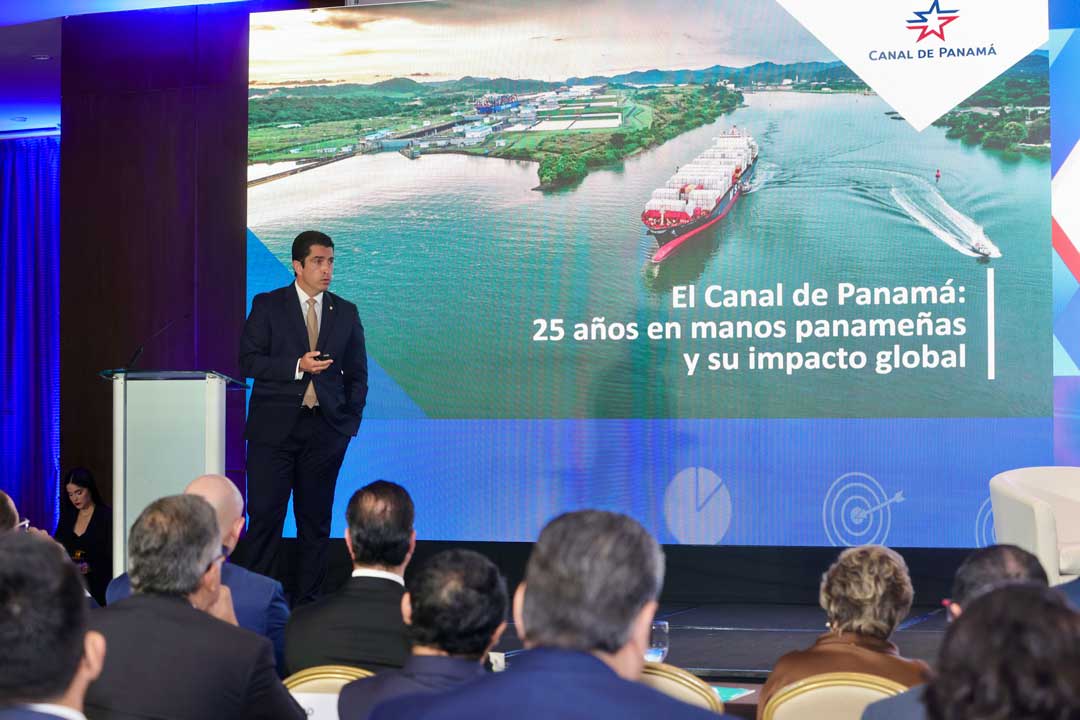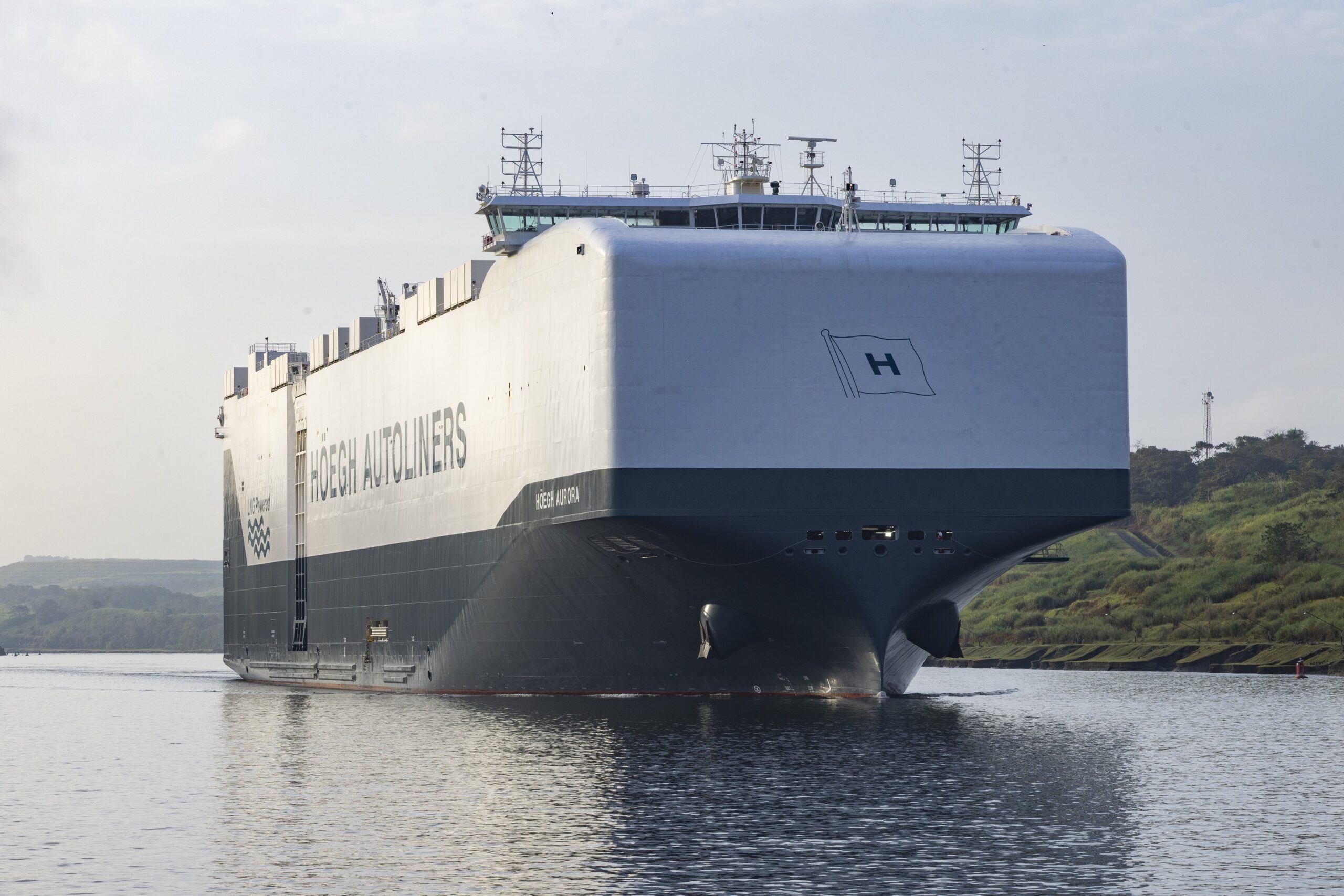Key to Canal vision: A world leader in services to maritime industry; the cornerstone of the global transportation system and a model of excellence, integrity and transparency
Shift to market-oriented business model, capital investments, operational efficiency and increased safety lead achievement
Durban, South Africa, May 29, 2003 – The Panama Canal services more than 140 different transportation routes from every corner of the globe and serves as a critical global link between commodities and consumers. The route linking the U.S. East Coast and Gulf Coast with Asia is increasingly becoming the most important, representing a significant portion of the more than 13,000 vessels that traveled through the Canal in 2002. The United States, Japan and the People’s Republic of China are the three largest users of the Canal. Sixty-eight percent of all Canal cargo originates from or is destined for the United States.
These insights and more were shared by Jerry Salazar, chairman of the Panama Canal Authority (ACP) Board of Directors, at the International Association of Ports and Harbors (IAPH) conference in Durban, South Africa. Mr. Salazar stressed the important role of the Canal to world trade and presented the Canal’s vision for its future. He attributed the operational success of the Canal and Panama’s burgeoning ports to excellent management and the hard work of those at the Panama Canal Authority and others working in the Panamanian maritime industry:
“The shift to a market-oriented business model, major capital investments, intense focus on operational efficiency and increased safety has led to our achievements. In total, they are a prescription for what our clients need and want: safety and reliability. This is what the hard-working, world-class employees at the ACP strive for every day.”
Salazar highlighted three major tenets to the Canal’s vision:
- World leader in services to the maritime industry and in sustainable development for the conservation of the Panama Canal watershed.
- Cornerstone of the global transportation system and driving force for the progress, development and growth of Panama.
- Model of excellence, integrity and transparency in our conduct; committed to the integral development of our human resource team.
“The ACP is honored to be in Durban with the maritime community as we build a closer trade community throughout the world. The Panama Canal and the world’s ports and harbors represented here strive to do just that by making continual operational improvements, offering training and development for employees and providing excellent service for our customers,” said Salazar.
Presenting at the conference, Mr. Salazar highlighted numerous achievements made by the ACP in the last year, including a decreased accident rate, decreased Canal Waters Time (CWT) and increased tonnage through the Canal. Mr. Salazar also updated the audience on the ACP’s permanent modernization program, which includes new locomotives, new locks control system, a widened Gaillard Cut and the investment in the Automatic Identification System (AIS). Mr. Salazar touched on how the Canal has actively implemented security regulations instituted by Safety of Life at Sea (SOLAS), and has taken all precautions to secure the Canal against SARS.
Mr. Salazar concluded his remarks by addressing how important it is for ports and maritime sectors to work together toward common goals. “As world trade continues to grow, and rapid globalization affects every aspect of international supply chains, the ACP values its relationships with every port, harbor and other sectors of the maritime industry. We are the spokes on the wheels of international trade.”
The International Association of Ports and Harbors (IAPH) conference is being held in Durban, South Africa May 24 – 30. The biennial conference brings together thought leaders in the world port and maritime community to discuss current and long-term issues. The theme at this year’s conference is “Ports – The Catalytic Impact: Uniting World Economies through Ports and Harbors.” Various topics to be discussed include prospects and challenges of the global economy and trade, emerging trends of world shipping and logistics, security of ports and the maritime sector and the port industry’s strategic role for economic development in Latin America.
About the Panama Canal
The Panama Canal Authority is the autonomous agency of the Government of Panama in charge of managing, operating, and maintaining the Panama Canal. The operation of the Panama Canal Authority is based on its organic law and the regulations approved by its Board of Directors. For more information, please refer to the website: www.pancanal.com.




